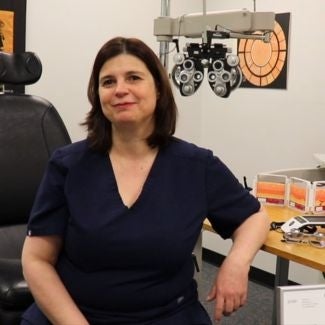What is macular degeneration?
Macular degeneration is a common eye disease that affects the retina – the light-sensitive area at the back of the eye. More specifically, it affects the macula, the central part of the retina. This is the part that is responsible for seeing what our vision is focused on, providing us with detailed vision.
By far most macular degeneration occurs in older people – in fact, the full name for the condition is age-related macular degeneration, or AMD. Juvenile macular degeneration, also called juvenile macular dystrophy, is far rarer and mainly affects teenagers. It has different hereditary causes that result in different patterns of disease. This article focuses on AMD.
Age-related macular degeneration is the leading cause of vision loss in older Canadians, affecting some 2.5 million Canadians, according to Fighting Blindness Canada.
Learn more from Dr. Tammy Labreche.
